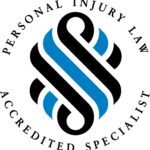Here are the top six reasons why your personal injury claim might be rejected and what you can do to address each issue:
- Lack of Evidence
Reason: Your claim might be rejected if there is insufficient evidence to prove that the injury occurred and that it was caused by the negligence of the other party.
What to Do:
- Gather all possible evidence, including medical records, witness statements, photographs of the injury and accident scene, and any relevant documentation.
- Keep detailed records of all treatments and how the injury has impacted your life.
- Obtain the name and contact details of any witness.
- Delay in Filing the Claim
Reason: If you wait too long to file your claim, it may be denied due to the expiration of the statute of limitations.
What to Do:
- Be aware of the statute of limitations for your type of personal injury claim.
- Notify your claim as soon as possible after the injury.
- Consult with a personal injury lawyer to ensure you meet all deadlines.
- Pre-Existing Conditions
Reason: Claims can be rejected if the insurance company believes your injury is due to a pre-existing condition rather than the accident in question.
What to Do:
- Provide comprehensive medical records to differentiate between pre-existing conditions and new injuries caused by the accident.
- Obtain a statement from your doctor explaining how the accident exacerbated your condition.
- Ensure your claim clearly shows how the injury is distinct from any pre-existing issues.
- Discrepancies and Inconsistencies
Reason: If there are inconsistencies in your account of the accident or your medical records, your claim may be rejected.
What to Do:
- Be consistent and accurate when describing the accident and your injuries.
- Review all statements and documents for accuracy before submission.
- Make sure to tell your doctors about all your injuries and disabilities.
- Work closely with your Lawyer to ensure all information is presented.
- Lack of Medical Treatment
Reason: Claims may be rejected if you did not seek immediate or appropriate medical treatment, suggesting that the injury was not serious.
What to Do:
- Seek medical attention immediately after the injury, even if it seems minor.
- Follow all medical advice and attend all follow-up appointments.
- Keep detailed records of all treatments and medical visits.
- Fault Disputes
Reason: If there is a dispute over who is at fault for the accident, your claim might be denied.
What to Do:
- Collect evidence to support your version of events, such as police reports, witness statements, and accident reconstruction reports.
- Take photographs of where the accident occurred.
- Avoid admitting fault at the scene of the accident.
- Consult with a lawyer who can help build a strong case to prove the other party’s liability.
General Advice:
- Consult a Lawyer: A lawyer that is an Accredited Specialist in Personal Injury Law can provide invaluable assistance in navigating the claims process and improving the chances of a successful outcome.
- Communicate Effectively: Maintain open and clear communication with your insurance company, medical providers, and legal representative.
- Be Persistent: If your claim is initially rejected, don’t give up. You can often have the decision reviewed or determined by the relevant Court.
By addressing these common issues proactively, you can strengthen your personal injury claim and improve your chances of receiving the compensation you deserve.
Please note that this is general information only and it is recommended that you obtain professional advice relevant to your circumstances. If you or someone you know wants more information or needs help or advice, please contact Rita Palazzolo on 0404 09 33 74 or email rita@rplawyer.com.au


